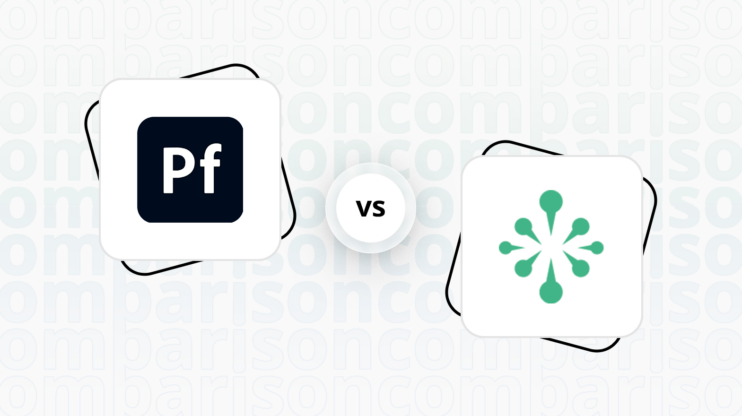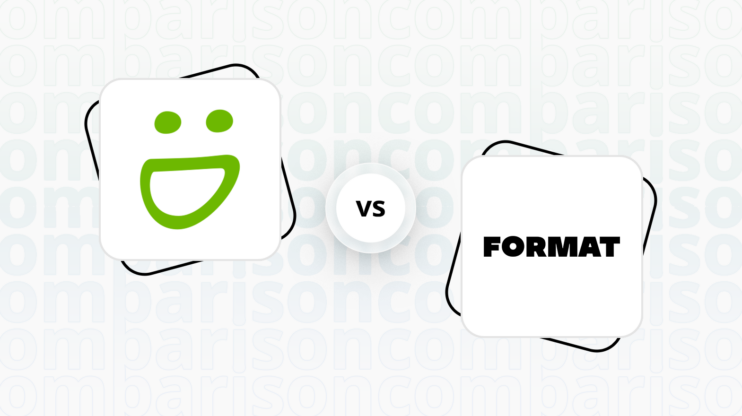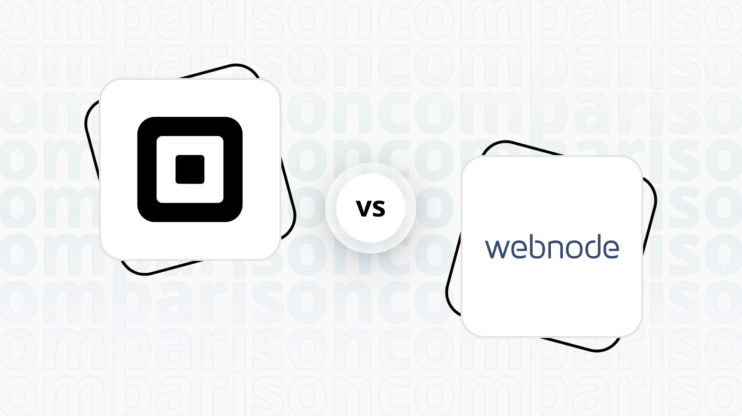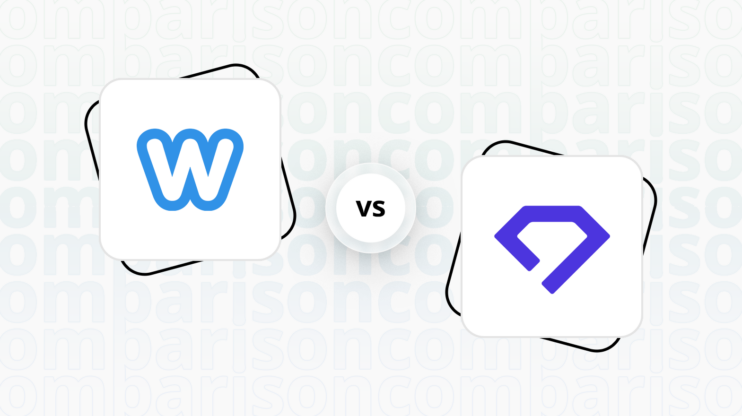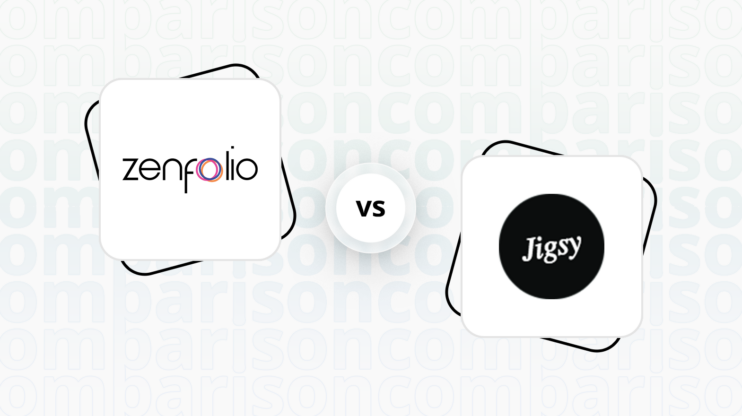Final verdict
SubHub and Zoho Sites both offer unique features tailored to different user needs, but Zoho Sites generally provides a more comprehensive and versatile platform.
-
SubHub (Overall Grade: 5.6/10)
is specifically designed for creating and managing membership sites. It excels in providing tools for content creators and entrepreneurs to build a community and monetize their content. With a focus on ease of use and efficiency, SubHub is ideal for users looking to set up subscription models and manage member access without advanced technical skills. However, it falls short in areas like ecommerce capabilities, hosting quality, and security compared to Zoho Sites. -
Zoho Sites (Overall Grade: 7.6/10)
offers a more versatile website building experience with a wide array of customizable templates and a user-friendly visual editor. It integrates seamlessly with other Zoho applications, providing enhanced functionality for various website needs, from blogging to business. Zoho Sites stands out in design functionalities, hosting quality, and security, making it a strong choice for users seeking a reliable and feature-rich platform. Its affordability and comprehensive set of tools make it suitable for a broader audience.

|

|
|
|---|---|---|
|
Design functionalities & templates |
6.8 |
7.4 |
|
Ease of use |
7.7 |
7.0 |
|
Ecommerce |
5.9 |
7.4 |
|
Website Editors |
6.9 |
7.5 |
|
Product testing options |
7.0 |
8.8 |
|
Price |
6.8 |
8.6 |
|
Hosting quality |
5.5 |
8.0 |
|
Website speed optimization |
5.6 |
7.1 |
|
Plugins and integrations |
5.7 |
7.3 |
|
Marketing features |
5.7 |
7.6 |
|
Customer support |
6.3 |
8.3 |
|
Security |
4.0 |
8.1 |
|
AI capabilities |
0 |
7.5 |
|
User Management |
5.2 |
7.3 |
Best for ecommerce
 5.9
5.9
 7.4
7.4
Verdict
: Zoho Sites is better suited for comprehensive ecommerce needs, while SubHub is more specialized for membership-based businesses.
-
SubHub
: SubHub is tailored for membership sites, offering tools for subscription models and member access management. It integrates with PayPal and Stripe for payment processing and supports physical and digital product listings. However, its ecommerce capabilities are limited compared to Zoho Sites, making it less ideal for traditional online stores. -
Zoho Sites
: Zoho Sites, integrated with Zoho Commerce, provides a robust set of ecommerce features, including product and inventory management, order processing, and extensive customization options. It supports multiple payment gateways and offers a range of marketing tools, making it a more versatile choice for businesses looking to establish a comprehensive online store.
Best for informational & business websites
 7.2
7.2
 7.9
7.9
Verdict
: When it comes to creating informational and business websites, Zoho Sites has a slight edge over SubHub due to its broader range of templates and more robust customization options. However, SubHub’s ease of use and focus on membership sites make it a strong contender for specific use cases.
-
SubHub
: SubHub is tailored for membership sites, offering tools for content creators and entrepreneurs to build and monetize their communities. While it excels in this niche, its capabilities for general informational websites are somewhat limited. The platform is user-friendly, making it easy for non-technical users to set up and manage their sites. SubHub scores 7.2 in this category. -
Zoho Sites
: Zoho Sites is a versatile website builder suitable for various purposes, including business and informational websites. It offers a wide range of customizable templates and a user-friendly visual editor, making it easy to create professional-looking sites without coding. Zoho Sites scores 7.9, making it a better choice for those looking for more design flexibility and advanced features.
Detailed comparison
Design functionalities & templates
Design FunctionalitiesRepresents how well each platform allows for creative design and customization of websites.Score Components:
- Template Variety (30%): Range and quality of design templates.
- Customization (30%): Flexibility and options for design alterations.
- User Interface (20%): Ease and intuitiveness of the design process.
- Responsiveness (10%): Adaptability to different devices and screen sizes.
- Innovation (10%): Unique design features and tools.
 6.8
6.8
 7.4
7.4
🏆
Winner: Zoho Sites.
If you’re looking for a platform that offers more creative control and a wide array of design features, Zoho Sites is the preferred choice.
SubHub website builder offers a variety of customizable membership website templates designed to cater to different needs and themes, including fitness, yoga, relationship, ministry, learning, craft, wellness, business, and modern living, among others. There are 14 specifically themed templates available, each designed to help users jump-start the design of their membership website homepages. These templates are fully customizable, allowing users to modify layouts, add or remove sections, and tailor content to fit their brand, ensuring flexibility in the design process.
Compared to SubHub, Zoho Sites offers a diverse collection of over 150 templates, thoughtfully categorized into industries like Restaurants, Architecture, Health, and more. Each template provides a pre-designed layout with responsive design for various screen sizes. Customization options include visual elements such as colors, fonts, and images, as well as the ability to modify layouts and content using the visual editor. For advanced users on the Advanced Plan, there’s the option to leverage HTML and CSS for deeper customization.
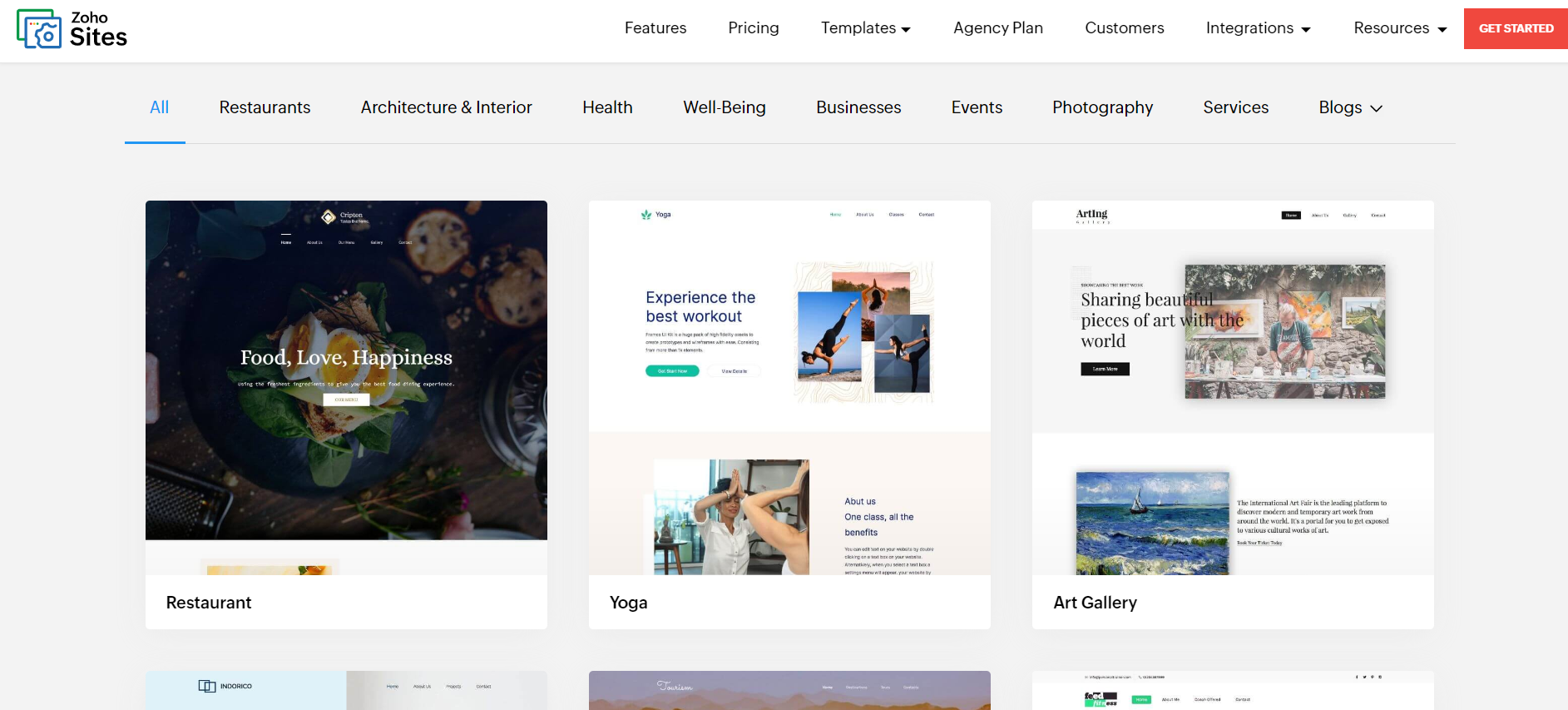

Get a head start on website creation with AI
Create a custom website tailored to your business needs 10X faster with 10Web AI Website Builder!
Ease of use
Ease of useReflects the platform’s overall user-friendliness.Score
Components:
- Learning curve (40%): Quickness and ease of getting started.
- Interface design (30%): Simplicity and intuitiveness of layout.
- User guidance (20%): Quality of tutorials and support.
- Flexibility (10%): Adaptability to various user skills.
 7.7
7.7
 7.0
7.0
🏆 Winner: SubHub
. With a score of 7.7, SubHub edges out Zoho Sites (7.0) in terms of ease of use. SubHub’s platform is designed specifically for building and managing membership sites, making it an ideal choice for content creators and entrepreneurs. Zoho Sites, while user-friendly, may present a steeper learning curve for users requiring advanced features and seamless data integration.
Learning Resources
🏆 Winner: Zoho Sites
. Both platforms offer a range of learning resources, but Zoho Sites provides a wider range of high-quality resources, including a detailed beginner’s guide, comprehensive user guides, video tutorials, blogs, FAQs, community forums, and webinars. SubHub, on the other hand, offers video guides and tutorials, a comprehensive FAQ section, and customer support via a ticketing system and premium phone support.
For ecommerce
EcommerceMeasures the platform’s effectiveness in supporting online business activities.Score Components:
- Ecommerce themes and templates (20%): Variety and design of templates.
- Product management (25%): Ease of managing and organizing products.
- Payment options (25%): Variety and convenience of payment methods.
- Ecommerce features (20%): Features for managing an ecommerce store.
- Integration (10%): Compatibility with external e-commerce tools and services.
 5.9
5.9
 7.4
7.4
SubHub and Zoho Sites offer different ecommerce capabilities. SubHub, designed for managing membership sites, provides tools for setting up subscription models, managing member access, and providing exclusive content. Zoho Sites, while lacking built-in ecommerce features, integrates with Zoho Commerce for online store management.

|

|
|
|---|---|---|
|
Ecommerce themes and templates |
3.0 |
6.5 |
|
Product page customization |
6.5 |
7.0 |
|
Payment processing and commissions |
7.0 |
6.8 |
|
POS capabilities |
0.0 |
5.5 |
|
Payment gateways |
6.0 |
7.2 |
|
Product numbers |
5.0 |
6.0 |
|
Additional ecommerce features |
4.5 |
7.3 |
SubHub ecommerce features:
- Paypal and Stripe integration
- Physical and Digital product listings
- Pay-per view products
Zoho Sites ecommerce features:
- Product and Inventory management
- Order management
- Payment Processing
- Marketing and Promotions
- SEO and Analytics
- Security
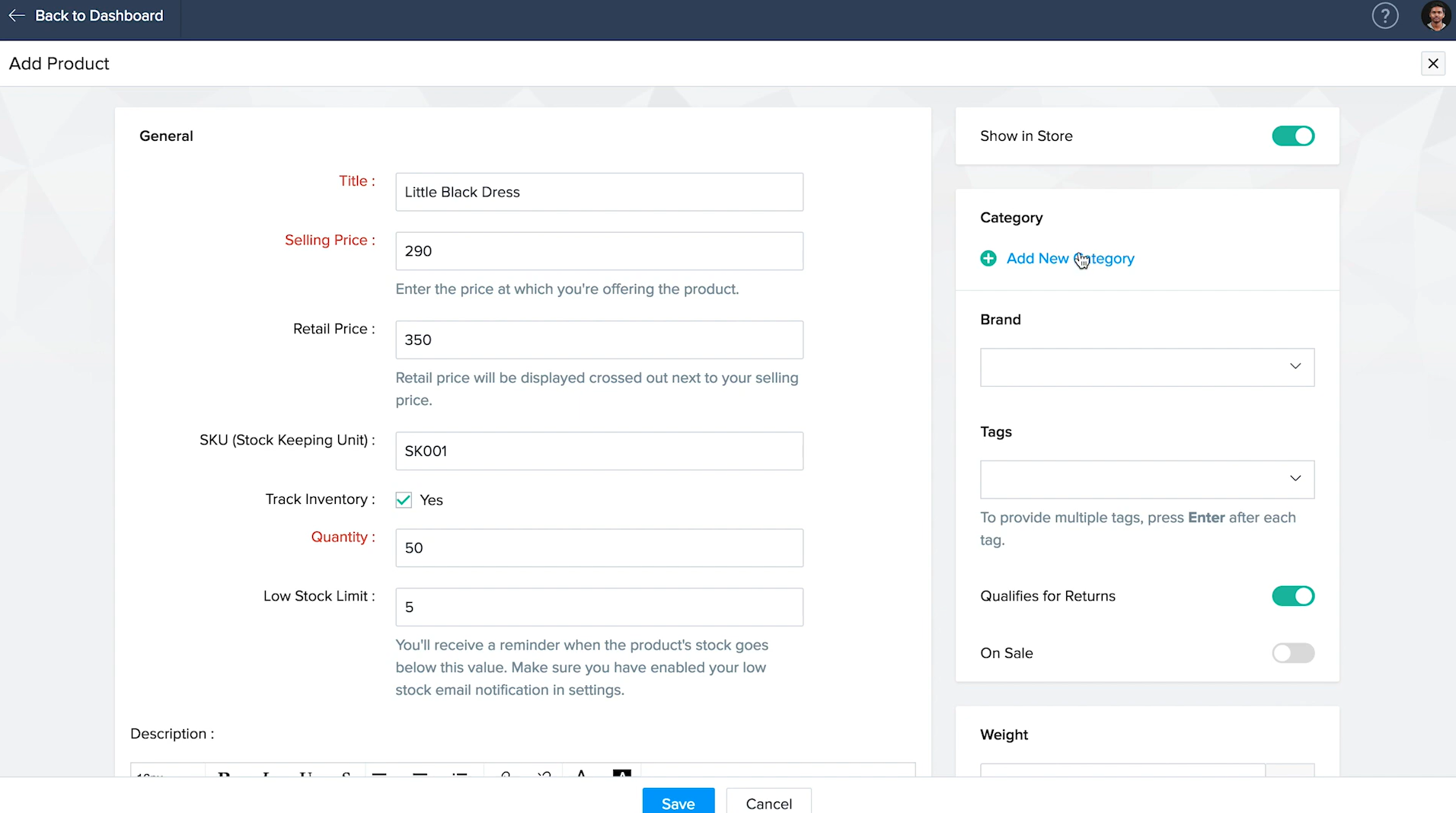
Ecommerce themes & templates
SubHub does not offer ecommerce specific templates. On the other hand, Zoho Sites provides a range of ecommerce website templates and themes designed for various industries and business needs. These templates are customizable, allowing businesses to tailor their online stores to their brand and product offerings.
Product page customization
SubHub offers a range of product page customization options, allowing for the addition of physical items, digital downloads, and pay-per-view content. Features include the ability to manage product variants, upload images, and set visibility preferences. Users can also implement SEO strategies through meta tags and manage tax settings. Additional functionalities include member-specific discounts, image carousels, and individualized shipping costs.
Zoho offers extensive product page customization options, allowing users to tailor the display of their products. This includes features like image galleries, sliders, and video integration, enabling businesses to present their products in a visually appealing manner. Additionally, Zoho facilitates the configuration of product variants like size and color options, as well as efficient inventory management directly from the product pages.
Payment processing
SubHub supports two main payment gateways: Stripe and PayPal. These integrations allow for secure payment processing for subscriptions and store items using debit or credit cards. The platform itself does not charge commissions on transactions.
Zoho Sites, in conjunction with Zoho Commerce, offers robust payment processing capabilities and supports integration with multiple payment gateways like PayPal, Stripe, and Square, facilitating secure online transactions. While direct POS system integration and commission management might require leveraging additional Zoho tools or custom solutions, the Zoho ecosystem provides a comprehensive suite for businesses to manage both online and in-store sales efficiently. This integration ensures flexibility and security for businesses aiming to provide a seamless shopping experience across multiple channels.
Website Editors
Website EditorsEvaluates the platforms’ website building and editing capabilities.Score Components:
- Customization tools (40%): Range and power of editing features.
- Editor usability (30%): User experience within the editor.
- Design flexibility (20%): Freedom in layout and design changes.
- Update and maintenance ease (10%): Simplicity of updating and maintaining the site.
 6.9
6.9
 7.5
7.5
🏆
Winner: Zoho Sites
. Zoho Sites, with a score of 7.5, offers a user-friendly website builder that enables both businesses and individuals to create professional, responsive websites without coding skills, through its drag-and-drop interface. Integrated within the Zoho ecosystem, it offers customizable templates, SEO tools, social media integration, and ecommerce features, along with connectivity to other Zoho applications for enhanced functionality.
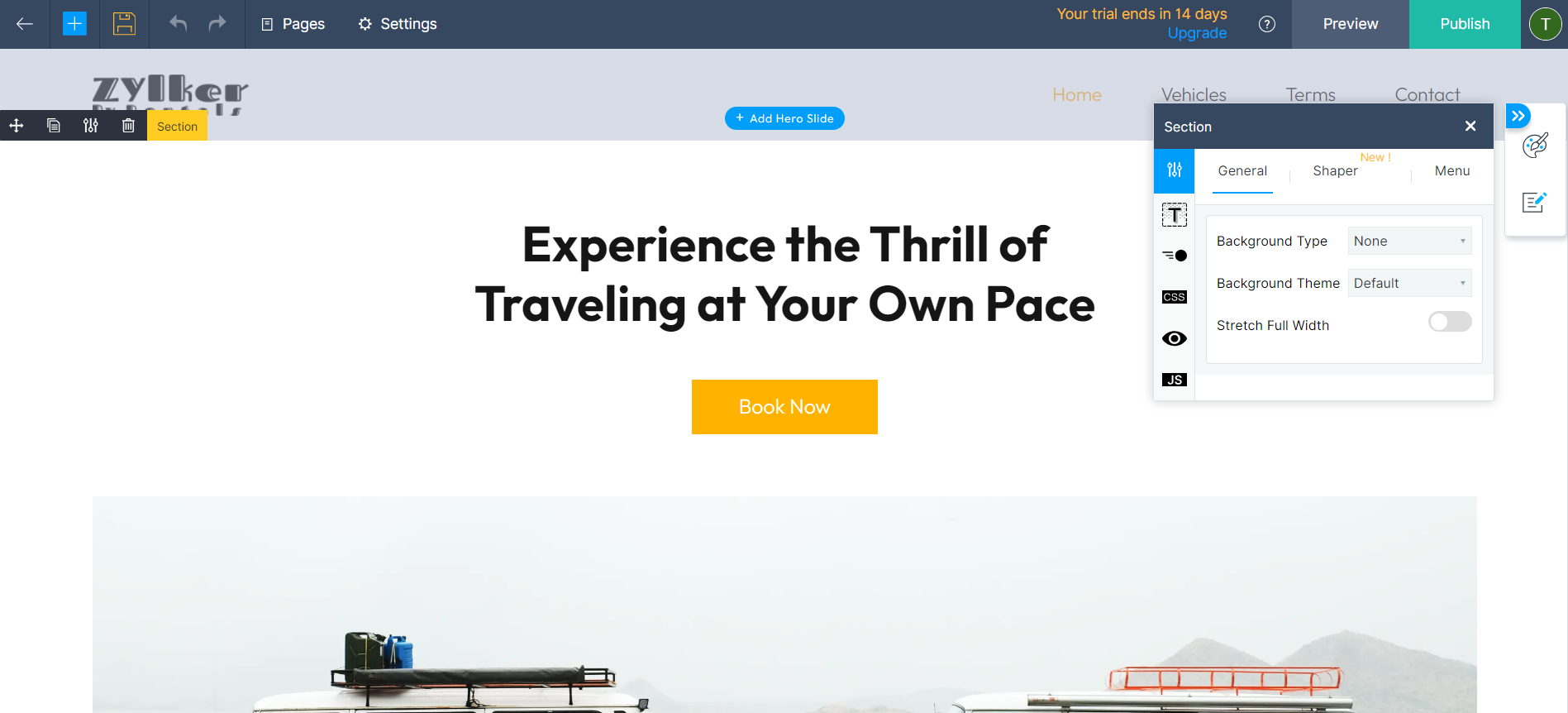
SubHub’s editor, scoring 6.9, offers a user-friendly website builder tailored for creating and managing membership sites, catering to content creators and entrepreneurs aiming to monetize their offerings. Its features encompass customizable templates, diverse content publishing options, and flexible subscription plans with seamless integration for recurring revenue through payment processors.
Mobile editor/app
 4.0
4.0
 5.5
5.5
🏆
Winner: Zoho Sites
. Both SubHub and Zoho Sites do not offer a dedicated mobile editor app. However, Zoho Sites allows users to edit the visual aspects of the mobile version of their website, such as font size, color, background, and shadow, but it does not allow content changes through the mobile interface.
On the other hand, SubHub does not have a dedicated mobile editor app, and users can only manage some content on their website using the mobile browser version. It’s not possible to change the layout and design of the website on mobile.
Therefore, Zoho Sites has a slight edge over SubHub in terms of mobile editing capabilities.
Product testing options
Product Testing OptionsAssesses the options for trying out platform features before commitment.Score Components:
- Trial quality (40%): Extent and usefulness of the trial or free version.
- Feature accessibility (30%): How many features are available to test.
- Trial duration (20%): Length of the trial period.
- Ease of transition (10%): Smoothness of moving from trial to paid plans.
 7.0
7.0
 8.8
8.8
Overall Result
:
Zoho Sites Wins
. Zoho Sites scores 8.8, outperforming SubHub’s score of 7.0. Zoho Sites offers a free version and a 15-day free trial, during which all features of each plan can be tested. They also provide a 30-day money-back guarantee for monthly subscriptions and a 45-day window for annual subscriptions. SubHub, on the other hand, offers a 14-day free trial and a 7-day money-back guarantee, but does not have a free version.

|

|
|
|---|---|---|
|
Free Plan |
No |
Yes |
|
Trial Duration |
14 days |
15 days |
|
Testing Premium Features |
During the free trial |
All features of each plan during trial |
|
Money Back Guarantee |
7-day money back guarantee |
30-day for monthly, 45-day for annual |
Price
PriceLooks at the cost-effectiveness and value for money of each platform.Score Components:
- Plan value (40%): What each pricing tier offers.
- Transparency and clarity (30%): Clearness of pricing structures.
- Flexibility of plans (20%): Range of options to suit different budgets.
- Hidden costs (10%): Additional expenses not included in the plan.
 6.8
6.8
 8.6
8.6
Zoho Sites offers more affordable options and a wider range of plans, while SubHub’s pricing is more straightforward and tailored for membership-based businesses.

|

|
|
|---|---|---|
|
$0-$10 |
No offering at this amount. |
Starter ($8.00/month): Offers basic features suitable for small websites, including 5 pages, 500MB storage, 10GB bandwidth/month, SSL hosting, domain connection, ad-free experience, and more. Ideal for personal blogs or small business websites. Value for price: 6.5 |
|
$20-$30 |
No offering at this amount. |
Pro ($23.00/month): Upgrades significantly on the Starter plan, offering 50 pages, 100GB storage, unmetered bandwidth, 50 forms, and advanced features like social share button, audio player, comment box, scheduled blog post, and dynamic content. Best suited for professional sites that require more resources and functionalities. Value for price: 8.0 |
|
$30-$50 |
Starter ($47/month): Up to 500 members, 5 GB storage, secure payment processing, course builder, 5 landing pages, e-commerce. Value for price: 6.5 |
Agency ($32.00/month): Tailored for agencies managing multiple sites, providing a bundle plan that offers significant savings and flexibility. Includes all Starter features with the option to add Pro features as needed. Value for price: 9.0 |
|
$90-$100 |
Pro ($97/month): Up to 2000 members, 50 GB storage, removes SubHub branding, 15 landing pages, along with Starter features. Value for price: 7.5 |
No offering at this amount. |
|
$100+ |
Premium ($147/month): Unlimited members, 200 GB storage, email white labelling, 30 landing pages, plus all Pro features. Value for price: 8.5 |
No offering at this amount. |
location. As a result in rare cases the prices displayed here can differ from the ones you see on their
websites.
Hosting quality
Hosting
qualityExamines the reliability and performance of the hosting solutions.Score Components:
- Uptime (40%): Consistency and reliability of website availability.
- Speed (30%): Loading times and performance.
- Bandwidth and storage (20%): Sufficiency of resources provided.
- Data centers (10%): Quality and distribution of hosting infrastructure.
 5.5
5.5
 8.0
8.0
Winner: Zoho Sites
. Zoho Sites offers a more reliable hosting service with a 99.9% uptime guarantee and a network of 12 global data centers. SubHub, while offering hosting services, does not provide uptime statistics or guarantees and does not disclose the locations of its data centers. This lack of transparency and assurance gives Zoho Sites the edge in this category.

|

|
|
|---|---|---|
|
Do they offer hosting? |
Yes, with storage limitations ranging from 5GB to 200GB depending on the plan and daily backups. | Yes, Zoho Sites offers efficient hosting with a focus on speed, demonstrated by a high Google PageSpeed Insights score. The platform supports different needs through its shared web hosting service, with storage and bandwidth varying by plan, from 500MB and 10GB/month in the Starter plan to 100GB storage with unmetered bandwidth in the Pro plan. |
|
Data Centers: |
Subhub does not disclose the locations of its data centers | 12 Globally: Canada(Montreal and Toronto), US(Quincy and Dallas), India(Mumbai and Chennai), Australia(Sydney and Melbourne), China(Beijing and Shanghai), Japan(Tokyo and Osaka) |
|
Type of hosting: |
Managed Cloud Hosting | Managed Hosting |
|
Uptime: |
Subhub does not provide uptime statistics or guarantees | 99.9% |
|
Uptime Guarantee: |
No | Yes, 99.9% |
Website Speed Optimization
Website Speed OptimizationEvaluates optimization of website loading timesScore Components:
- PageSpeed Score (30%): Google’s score indicating performance optimization.
- Loading Time (30%): The average time until a website is fully interactive.
- Mobile Optimization (15%): Optimization effectiveness for mobile devices.
- Resource Optimization (15%): Optimizing images, scripts, and other heavy resources.
- CDN Usage (10%): Use of CDN to enhance speed across geolocations.
 5.6
5.6
 7.1
7.1
🏆 Winner: Zoho Sites
Both SubHub and Zoho Sites prioritize website performance and page speed, but Zoho Sites takes the lead with its regular testing and updates, optimized code and libraries, and cache balancing.

|

|
|
|---|---|---|
|
Focus |
Image Optimization, Caching, Mobile Optimized design |
Regular testing and updates, Optimized code and libraries, Cache balancing |
|
Performance Tools |
Not specified |
Not specified |
|
Key Strategies |
Image Optimization, Caching, Mobile Optimized design |
Regular testing and updates, Optimized code and libraries, Cache balancing |
|
Load Times |
Varies depending on optimization and website complexity |
Below 2-5 seconds average |
|
Page Speed Scores Range |
Varies depending on optimization and website complexity |
70-80/100 average |
|
Core Web Vitals Improvement |
Not specified |
Implementing various performance optimization techniques |
Zoho Sites focuses on regular testing and implementing updates, optimized code and libraries, and cache balancing to optimize website speed. It has an average load time of below 2-5 seconds and an average PageSpeed score of 70-80/100. Zoho Sites also emphasizes on improving Core Web Vitals by implementing various performance optimization techniques.
On the other hand, SubHub’s strategies for speed optimization include image optimization, caching, and mobile-optimized design. However, the load times and PageSpeed scores vary depending on the optimization and website complexity. SubHub does not provide any specific information on their Core Web Vitals improvements.
Get a head start on website creation with AI
Create a custom website tailored to your business needs 10X faster with 10Web AI Website Builder!
Plugins and integrations
Plugins and integrationsMeasures the range and effectiveness of additional plugins and integrations.Score Components:
- Variety of options (40%): Range of available add-ons.
- Integration smoothness (30%): Ease of integrating plugins into the site.
- Quality of plugins (20%): Functionality and reliability of the options.
- Custom integration capabilities (10%): Support for custom or third-party integrations.
 5.7
5.7
 7.3
7.3
🏆 Winner: Zoho Sites.
Zoho Sites scores 7.3, offering a diverse range of plugins and extensions spanning various categories like marketing, design, social media, SEO, payments, and more. SubHub, with a score of 5.7, is designed with a focus on simplicity and integrated functionalities for building membership-based websites, catering especially to users with minimal technical expertise. While Subhub provides a comprehensive toolkit for creating and managing membership sites, its range of external integrations might be seen as limited compared to Zoho Sites.
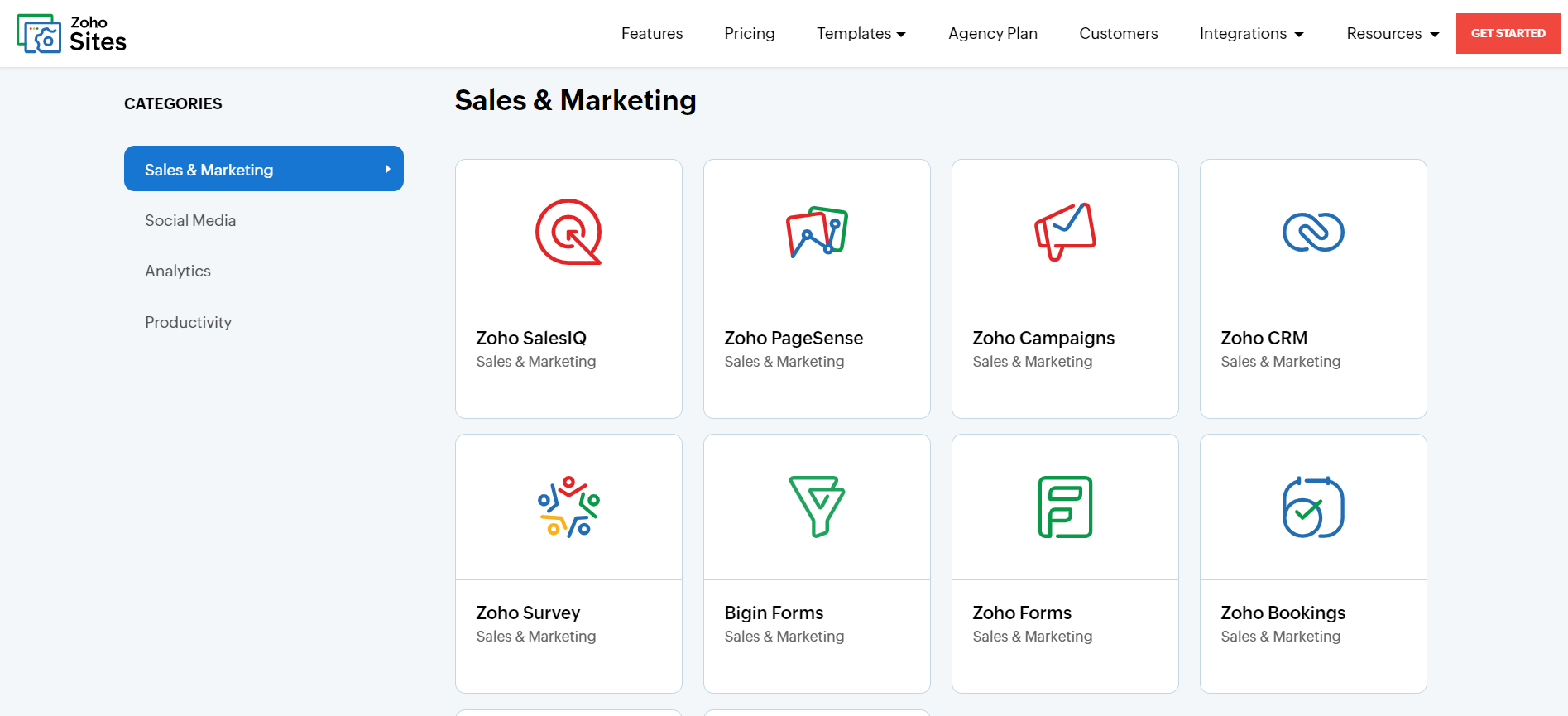
Marketing Features
Design FunctionalitiesRepresents how well each platform allows for creative design and customization of websites.Score Components:
- Template Variety (30%): Range and quality of design templates.
- Customization (30%): Flexibility and options for design alterations.
- User Interface (20%): Ease and intuitiveness of the design process.
- Responsiveness (10%): Adaptability to different devices and screen sizes.
- Innovation (10%): Unique design features and tools.
 5.7
5.7
 7.6
7.6
🏆
Overall Winner: Zoho Sites
. Zoho Sites offers a more comprehensive set of marketing tools, including social media integration and extensive management across platforms like Twitter and Facebook. SubHub, while offering a range of tools tailored for content creators and entrepreneurs, lacks in social media integration.

|

|
|
|---|---|---|
|
SEO Tools |
|
|
|
Email Marketing |
Built-in and through Mailchimp integration |
Through Zoho Campaigns integration |
|
Blogging |
|
|
|
Social Media Integration |
No |
Extensive management across platforms |
|
Analytics and Reporting |
Google Analytics integration |
Traffic analytics and Google Analytics integration |
|
Ads and Promotions |
|
Integrated with Zoho Marketing Automation |
Customer Support
Customer supportEvaluates the quality and availability of support options.Score Components:
- Response time (40%): Speed of support responses.
- Support quality (30%): Effectiveness and helpfulness of the support.
- Availability (20%): Range of support channels (phone, chat, email).
- Resource richness (10%): Quality of self-help and educational materials.
 6.3
6.3
 8.3
8.3
🏆 Winner: Zoho Sites
. When comparing SubHub vs Zoho Sites, Zoho Sites takes the lead with a higher customer support score of 8.3. Zoho Sites offers 24/7 support through live chat, email, and phone, ensuring users can get help whenever they need it. Additionally, Zoho Sites provides a comprehensive knowledge base and community forum, making it easier for users to find answers to common questions and interact with other users.
SubHub, on the other hand, offers customer support primarily through email and a support portal, with an FAQ section for immediate answers to common questions. While SubHub’s support is accessible and responsive, it lacks the 24/7 availability and multiple support channels that Zoho Sites provides, resulting in a lower customer support score of 6.3.
Security
SecurityLooks at the platforms’ security measures and data protection.Score Components:
- Data protection (40%): Safeguards for user and customer data.
- SSL and encryption (30%): Implementation of secure connections.
- Compliance (20%): Adherence to industry security standards.
- Regular updates (10%): Frequency of security updates and patches.
 4.0
4.0
 8.1
8.1
🏆
Winner: Zoho Sites
. Zoho Sites has a higher security score of 8.1 compared to SubHub’s 4.0. Zoho Sites provides a secure environment for website creation and management, using SSL encryption to protect data transmission and offering two-factor authentication for added security. They also regularly update their software to address any potential vulnerabilities.
On the other hand, SubHub’s privacy policy outlines their approach to collecting, using, and protecting user personal data, emphasizing compliance with GDPR and CCPA regulations. However, they do not disclose any specific information about the website security measures they provide.
AI Capabilities
AI capabilitiesMeasures the effectiveness of AI-driven features and tools.Score Components:
- Automation efficiency (40%): Impact of AI on streamlining processes.
- Personalization (30%): AI-driven customization for users or customers.
- AI-Assisted design (20%): Role of AI in website design and functionality.
- Data analysis (10%): Use of AI in interpreting user data and analytics.
 0
0
 7.5
7.5

|

|
|
|---|---|---|
|
Personalized Design |
|
|
|
SEO Optimization |
|
|
|
Customer Behavior Analysis |
|
AI-backed product recommendations based on customer interactions |
|
Sales Predictions |
|
AI-powered sales predictions |
|
Inventory Management |
|
|
|
Content Generation |
|
AI assistance in creating and optimizing site content |
🏆 Winner: Zoho Sites
. Zoho Sites, with a score of 7.5, leverages AI capabilities to enhance the user experience. It offers AI-backed ecommerce features, AI content generation, and additional AI features provided by Zia, Zoho’s AI assistant. These features significantly reduce the time required to create high-quality content and provide intelligent, contextual suggestions for headlines and paragraphs.
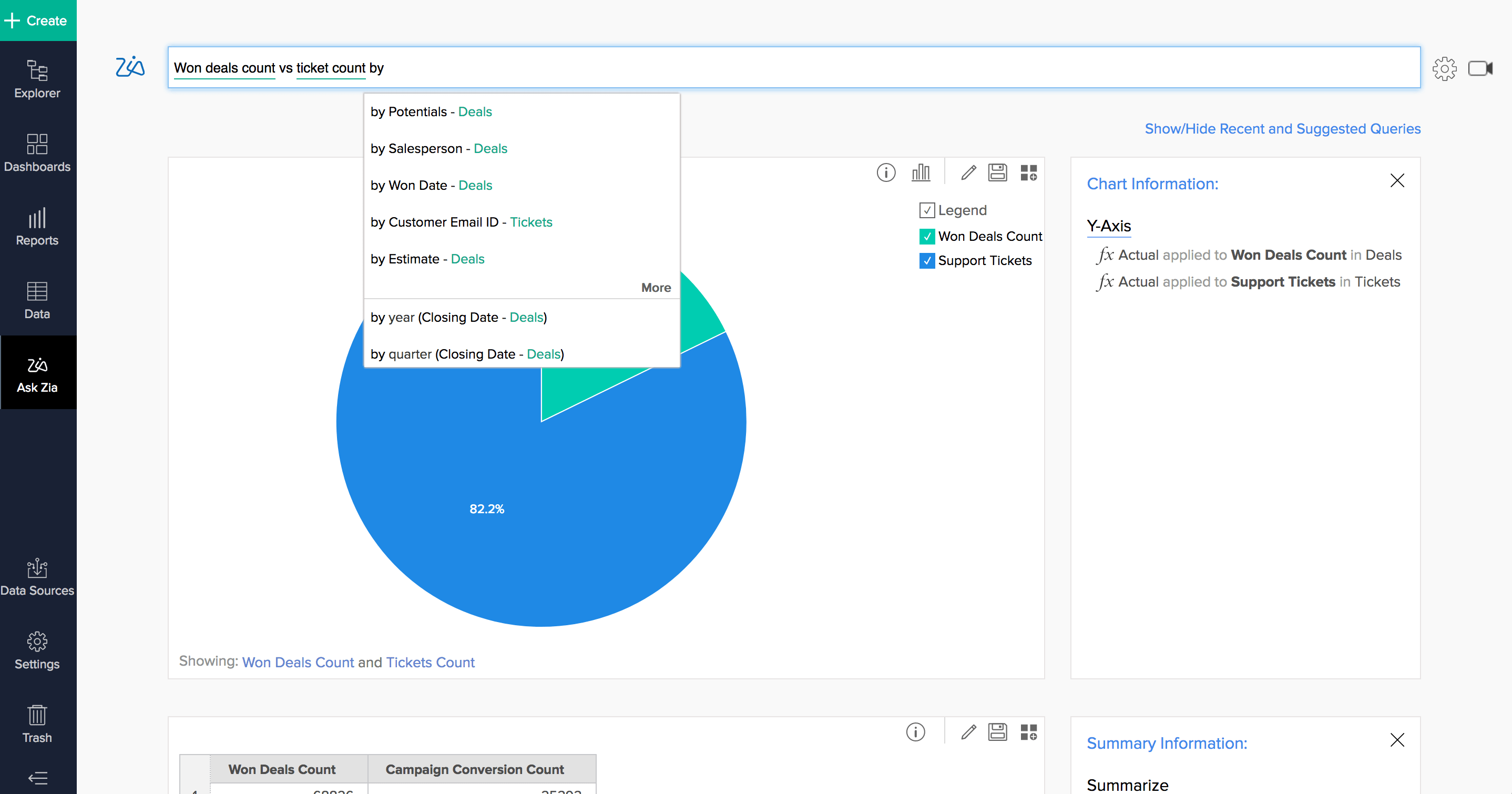
SubHub, on the other hand, does not have any AI capabilities. This means that while it may offer a range of tools tailored for content creators and entrepreneurs, it lacks the advanced AI features that can enhance the user experience and streamline the website creation process.
User Management
User ManagementAssesses the platforms’ capabilities in managing user roles, permissions, and accessibility.Score Components:
- Role Customization (40%): Flexibility in creating and defining user roles and
permissions. - Ease of Management (30%): User interface and tools for managing users.
- Access Control (20%): Effectiveness of access control measures for different user
levels. - Scalability (10%): Ability to manage a growing number of users efficiently.
 5.2
5.2
 7.3
7.3
🏆 Winner: Zoho Sites
. Both SubHub and Zoho Sites offer different user management capabilities.
- SubHub allows multiple user accounts, however, the platform does not specify how many accounts are supported.
- The number of users who can edit a Zoho Sites website and their access levels depend on the chosen plan. The Free Plan allows only the owner to edit, while paid plans like Pro, Business, and Enterprise offer access for up to 10, 25, and 50 users respectively.
SubHub User Roles and Access Levels:
| Role | Description | Access Highlights |
|---|---|---|
| Administrator | Full access to the platform except for Homepage and Course Editor. | Can manage all aspects of the platform, including content, store, and member management. |
| Content Management | Focuses on managing and organizing content within the platform. | Can access and manage content-related features but does not have access to Homepage or Course Editor. |
| Store (access only) | Specializes in handling the platform’s store features. | Limited to store management functions; no access to Homepage, Course Editor, or member management. |
| Member Manager (access only) | Oversees member accounts, roles, and subscriptions. | Can manage members and their subscriptions but cannot access Homepage, Course Editor, or store management. |
| Origin Admin Email | The initial administrator with the highest level of access, including Homepage and Course Editor. | Exclusive access to Homepage and Course Editor, on top of what the Administrator role provides. |
Zoho Sites provides four access levels: Admin, with full editing rights and user management; Contributor, who can edit content and create pages but not manage collaborators; and Author, limited to editing text content without access to settings or user management. However, a detailed user roles table for Zoho Sites is not provided.
Additional Features

|

|
|
|---|---|---|
|
SSL Certificate |
|
|
|
Custom Domain |
|
|
|
Free Custom Domain Included |
|
|
|
International Domains |
|
|
|
Mobile Responsive |
|
|
|
Page Speed |
|
|
|
Website Builder Mobile App |
|
|
|
Convert a Website To An App |
|
|
|
Website Analytics |
|
|
|
Multilingual Sites |
|
|
|
Multiple Users |
|
|
User Feedback
User feedback on SubHub presents a mix of positive and negative experiences, emphasizing the platform’s feature-rich environment and customizable templates. Users appreciate the flexibility and the quality of customer service, highlighting the platform’s continual updates and support as key benefits. However, some users express dissatisfaction with aspects such as the platform’s interface, lack of community features, and service fees for ticket resale. Concerns were also raised about the custom design service and mobile-friendly solutions taking longer than expected.
Zoho Sites receives mixed reviews, with users praising its user-friendly interface, extensive template library, and seamless integration with other Zoho products, which simplifies website development and management for small businesses. However, some users express dissatisfaction with its limited design flexibility and the inability to create custom features. Overall, Zoho Sites addresses the need for cost-effective website solutions, particularly for those without coding knowledge, offering a one-stop-shop for building and managing websites with varying degrees of customization and integration with other business tools.
The making of this blog
We followed a clear, step-by-step process to write and research this article.
FAQ
Which platform is better for membership-based websites, SubHub or Zoho Sites?
Can I use Zoho Sites for ecommerce?
Which platform offers better design and customization options?
Is SubHub easy to use for beginners?
How do the platforms compare in terms of pricing?
Which platform provides better customer support?
Are there any AI capabilities offered by SubHub or Zoho Sites?
Which platform is recommended for users needing advanced marketing tools?










